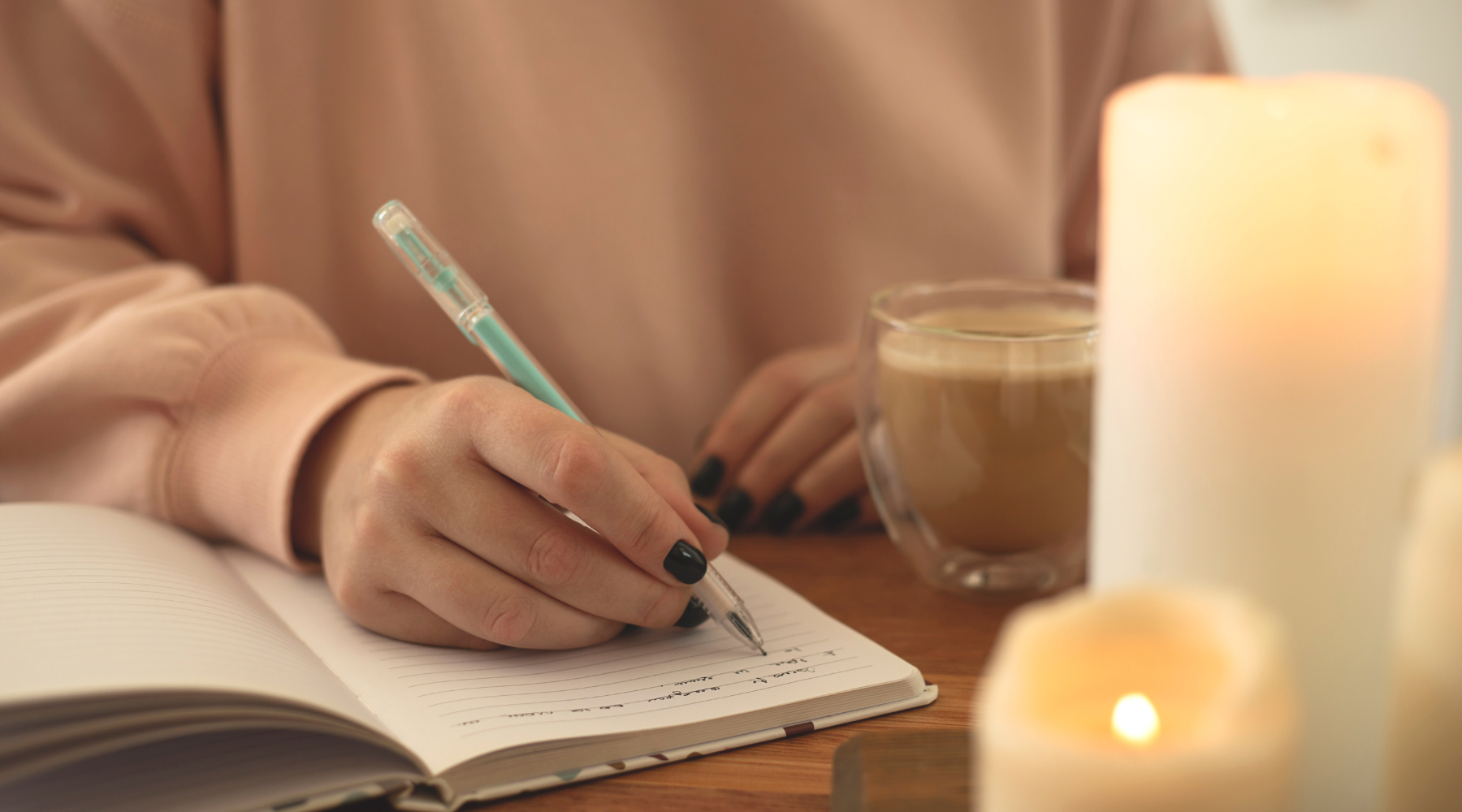Mindfulness and Sleep: Using Journaling for Better Rest

In our fast-paced, always-connected world, finding peaceful slumber can often feel like chasing an elusive dream. The constant barrage of notifications, the pressure of looming deadlines, and the weight of daily stressors can leave our minds racing long after we've laid our heads on the pillow. But what if the key to better sleep was already at your fingertips? Enter the powerful combination of mindfulness and journaling – a duo that might just revolutionize your nighttime routine and transform your sleep quality.
The Science Behind Mindfulness and Sleep
Mindfulness, at its core, is the practice of being fully present and engaged in the moment, aware of our thoughts and feelings without distraction or judgment. When it comes to sleep, mindfulness can be a game-changer. Research has shown that mindfulness practices can reduce sleep-disturbing thoughts, decrease the time it takes to fall asleep, and improve overall sleep quality.
By calming the mind and reducing stress, mindfulness creates the perfect conditions for restful sleep. It helps to break the cycle of rumination and worry that often keeps us tossing and turning. The Sleep CBT Bundle, which includes a CBT Sleep Workbook, is an excellent resource for learning how to apply mindfulness techniques specifically to improve your sleep.
And one of the most accessible and effective ways to practice mindfulness? Journaling.
Understanding Journaling as a Mindfulness Practice
Mindful journaling is more than just jotting down your day's events. It's a reflective practice that encourages you to explore your thoughts and feelings, helping you process the day and prepare for restful sleep. By putting pen to paper, you're engaging in a form of meditation that can quiet the mind and promote relaxation.
The act of writing itself can be therapeutic. It allows you to externalize your thoughts, giving you a sense of control over them. This can be particularly helpful if you find yourself lying awake at night, your mind buzzing with unchecked worries or unresolved issues from the day.
The School of Life's "Who Am I?" Book is an excellent tool for this kind of reflective journaling. It offers guided prompts that can help you develop self-understanding, which is crucial for mental peace and better sleep. By exploring your identity, values, and experiences, you create a stronger foundation for emotional stability, which in turn supports better sleep.
5 Journaling Techniques for Better Sleep
- Gratitude journaling: Before bed, write down three things you're grateful for. This positive focus can help shift your mind away from stressors and towards the good in your life. The Small Pleasures Book can be a great source of inspiration for recognizing and appreciating life's little joys.
- Worry dump: Use your journal as a place to offload your worries. By writing them down, you're symbolically removing them from your mind. The Anti-Anxiety Notebook is specifically designed for this purpose, using Cognitive Behavioral Therapy techniques to help you manage anxiety and stress.
- Stream of consciousness writing: Just write whatever comes to mind for a set period. This can help clear your head of cluttered thoughts. Set a timer for 10-15 minutes using the 15 Minute Hourglass Timer and let your thoughts flow freely onto the page.
- Goal setting and reflection: Use the What Do I Really Want to Achieve? Cards to explore your ambitions and reflect on your progress. This can give you a sense of purpose and calm, helping to quiet the mind before sleep.
- Dream journaling: Keep your journal by your bed to record dreams upon waking. This can improve your sleep awareness and provide insights into your subconscious. Over time, you might notice patterns that can help you understand your sleep quality better.
Getting Started with Sleep Journaling
Choosing the right journal is crucial. The School of Life journals are designed with psychological exercises that can guide your journaling practice. For those dealing with specific sleep issues, the Sleep & CBT-I Workbook offers a 6-week program to improve your sleep using Cognitive Behavioral Therapy techniques.
Set up a cozy journaling nook in your bedroom, perhaps with a soft light and comfortable seating. Make sure your space is conducive to relaxation – consider using a Silk Sleep Mask to block out any disturbing light while you write or when you're ready to sleep.
To make journaling a consistent habit, try to do it at the same time each night. Even just 10-15 minutes can make a difference. Use a 15 Minute Hourglass Timer to keep track of time without the distraction of your phone.
Common Challenges and How to Overcome Them
- "I don't have time to journal": Start small. Even 5 minutes of journaling can be beneficial. Remember, the goal is quality, not quantity.
- "I don't know what to write": Use prompt cards like the Know Yourself Prompt Cards for inspiration. These cards are designed to help you gain insight and clarity about yourself, which can be invaluable for promoting better sleep.
- "I fall asleep while journaling": This isn't necessarily bad! If you're relaxed enough to fall asleep, the journaling is working. Just make sure to set your journal aside safely before dozing off.
- "My mind wanders too much": This is normal, especially when you're just starting out. When you notice your mind wandering, gently bring your attention back to your writing. The Calm Prompt Cards can help you refocus and find your inner calm.
Integrating Journaling with Other Sleep Hygiene Practices
Journaling can be a key part of a larger bedtime routine. Consider combining it with other relaxation techniques like deep breathing or light stretching. The Mind & Body Book offers excellent guidance on harmonizing your mental and physical states for better sleep.
Create a sleep-friendly environment. Keep your bedroom cool, dark, and quiet. If you're prone to checking your phone, consider using the Phone Detox book to break this habit and improve your sleep hygiene. The book provides insights and strategies to help you cultivate a healthier relationship with technology, which can significantly impact your sleep quality.
For those dealing with more severe sleep issues, the Sleep Anxiety Bundle combines the Anti-Anxiety Notebook with a Silk Eye Mask, providing a comprehensive approach to managing anxiety-induced sleepless nights.
Addressing Deeper Issues: When Journaling Reveals More
Sometimes, the process of journaling can bring to light deeper issues that are affecting your sleep. If you find yourself consistently writing about traumatic experiences or severe anxiety, it might be helpful to seek additional support.
The Trauma & Written Exposure Workbook offers a 5-week guided healing program using Written Exposure Therapy (WET) to help you confront and process trauma. Remember, improving your sleep often involves addressing underlying emotional and psychological factors.
If you're dealing with depression, which can significantly impact sleep patterns, the Depression Guidebook provides strategies for managing symptoms and improving overall well-being, including sleep quality.
Measuring Progress: Tracking Sleep Improvements
Use your journal to track your sleep patterns. Note how long it takes you to fall asleep, how often you wake during the night, and how refreshed you feel in the morning. The Emotional Barometer + Cards can be a helpful tool for articulating and tracking your moods, which often correlate with sleep quality.
Signs that journaling is improving your sleep might include:
- Falling asleep more quickly
- Experiencing fewer middle-of-the-night wake-ups
- Feeling more refreshed in the morning
- Reduced anxiety or racing thoughts at bedtime
- Improved mood and energy levels during the day
Remember, progress isn't always linear. Some nights will be better than others, and that's okay. The On Failure Book offers a reassuring perspective on setbacks and can help you maintain a positive outlook even when things don't go as planned.
Expanding Your Mindfulness Practice
As you become more comfortable with journaling for sleep, you might want to explore other mindfulness practices. The Calm Workbook offers a range of exercises to help you cultivate a calmer state of mind, which can further enhance your sleep quality.
For those struggling with the pressures of modern life, which can often lead to sleep disturbances, the How to Survive the Modern World book provides insights on finding calm amidst the chaos of contemporary living.
Conclusion
Mindfulness and journaling offer a powerful combination for improving sleep quality. By taking time to reflect, process your day, and clear your mind, you're setting the stage for more restful nights and more energized days.
Remember, developing a new habit takes time. Be patient with yourself and celebrate small victories. Whether you're using the Self Knowledge Book to dive deep into self-understanding or the Small Pleasures Cards to focus on life's joyful moments, each journaling session is a step towards better sleep and improved well-being.
In our quest for better sleep, it's easy to overlook the power of our own minds. But through mindful journaling, we can tap into an incredible resource for relaxation, self-understanding, and ultimately, restorative sleep. So tonight, before you turn out the lights, why not pick up a pen and see where your thoughts take you? Your journey to better sleep might just begin with a single word on a page.
Sweet dreams and happy journaling!
We'd love to hear about your experiences with mindfulness and sleep journaling. Share your thoughts in the comments below, and don't forget to explore our range of sleep and self-improvement products designed to enhance your journaling practice and promote better sleep. Remember, every small step towards better sleep is a step towards a healthier, happier you.



